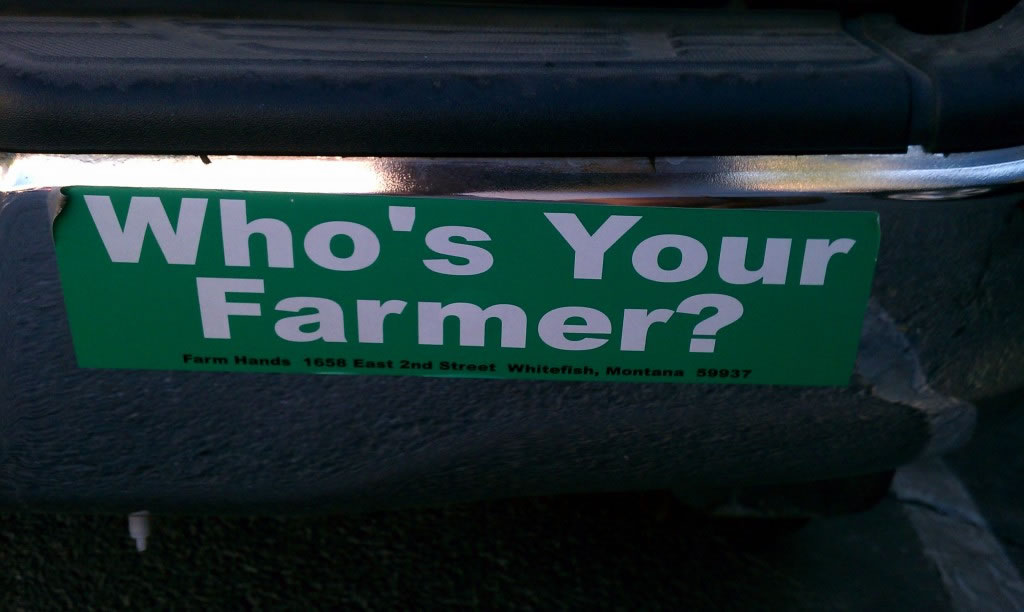USDA Pushes 'Know Your Farmer' Campaign

Since 2009, the United States Department of Agriculture's attitude toward local food has performed an about face.
Consider this:
Before President Obama's inauguration, for about a five decade span, local and regional food systems had not been high on the USDA's priority list. But in the era preceding that, local food was really on equal footing with commodity farming. This is because petro-chemical fertilizers had not yet been made prolific and cheap – surplus of a made-over ordinance industry whose hot war had ended.
My, how far we've come to find ourselves standing in the same place.
Here's a snippet of a recent press release from the "people's department":
USDA unveiled the Know Your Farmer, Know Your Food (KYF) Compass, an interactive web-based document and map highlighting USDA support for local and regional food projects and successful producer, business and community case studies. While hosting a live webinar to highlight USDA's work over the past three years, the Secretaries emphasized how local and regional food systems across the country create additional economic opportunities for farmers, ranchers and food entrepreneurs, expand healthy food access and meet growing customer demand.'USDA works every day to strengthen American agriculture, drive job growth and support farm-family income,' said [Ag Secretary] Vilsack. 'The KYF Compass highlights how USDA support for local and regional food systems has brought additional opportunities to our country's farmers, ranchers, processors, distributors and food entrepreneurs. The stories and maps in the Compass underscore how diverse and innovative American agriculture can be.' Source: Western Farm Press.
The department describes the KYF program as a management initiative to increase inter-agency coordination. Deputy Secretary Kathleen Merrigan says it will help farmers and ranchers “tap into a vibrant, growing market opportunity.” It has also started a national discussion about the importance of agriculture and the benefits of knowing the producers who feed the country, Merrigan added.
Online: www.usda.gov/knowyourfarmer



